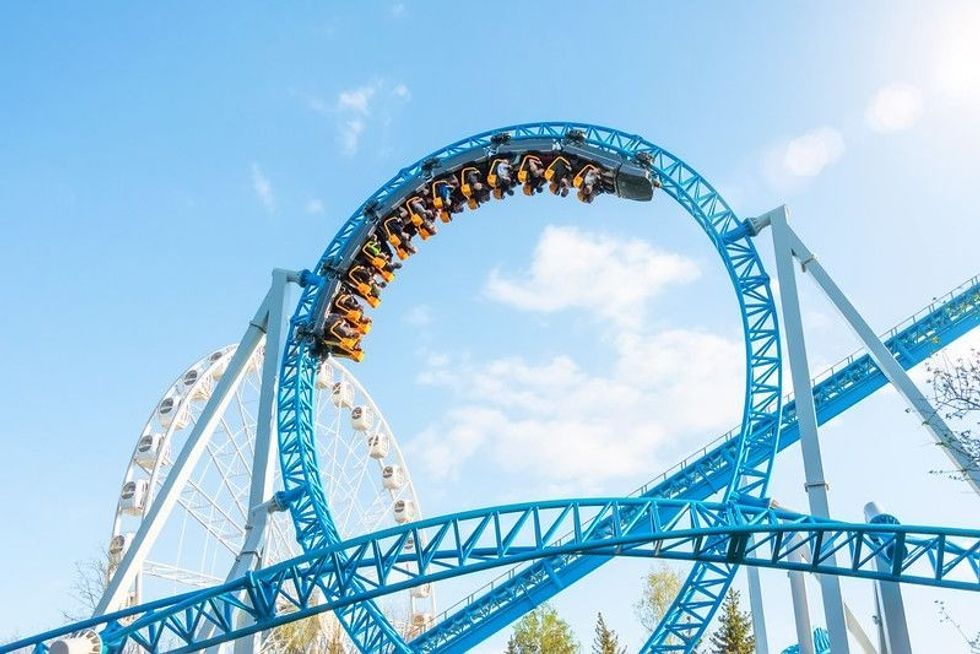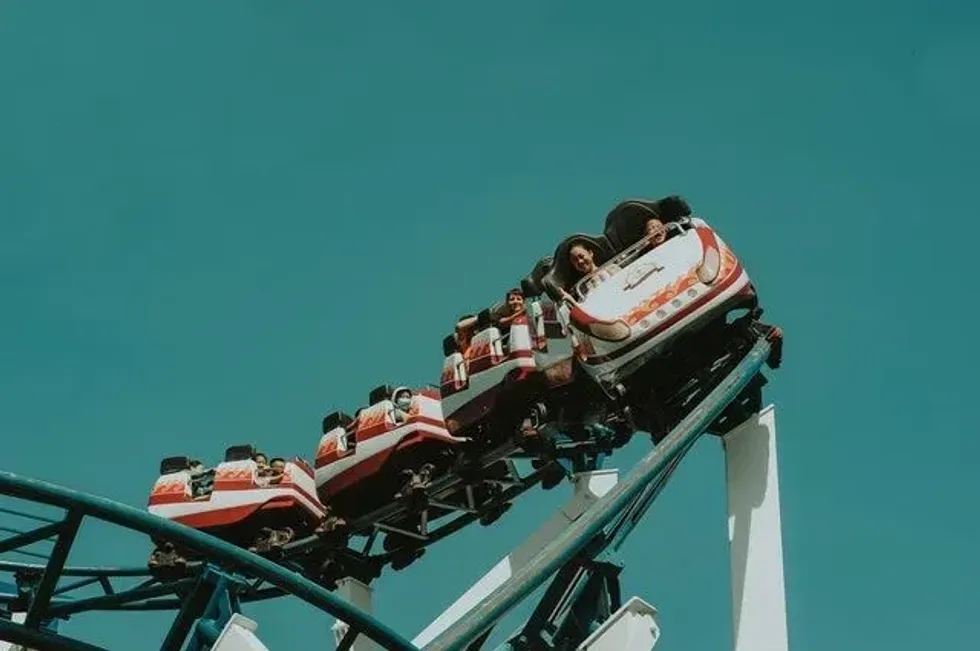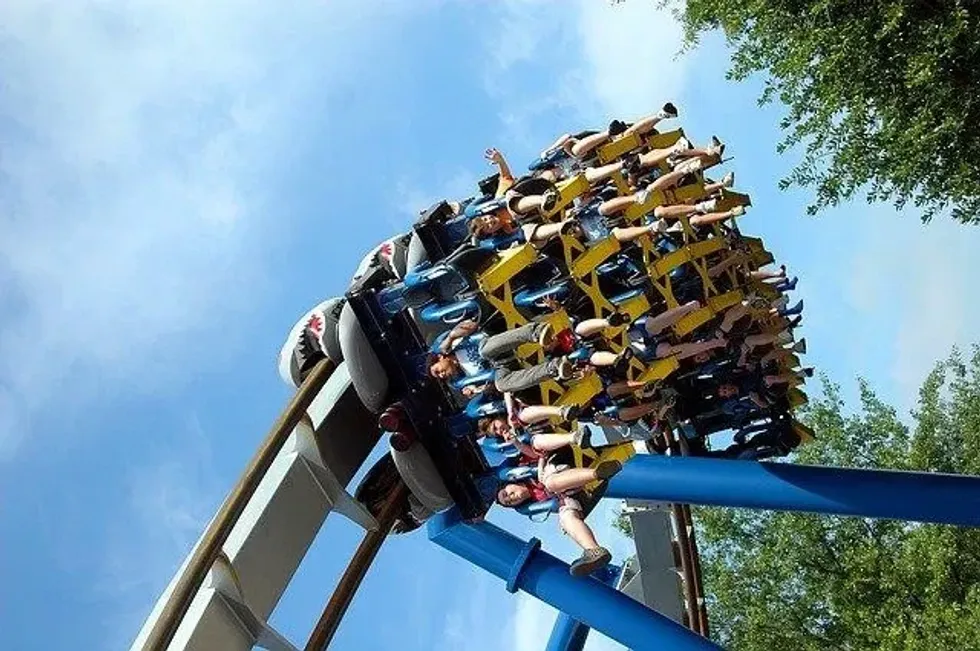It's a familiar scene on social media: excited riders on amusement park attractions, such as roller coasters, who suddenly succumb to unconsciousness mid-ride. The phenomenon of people passing out on these rides is not merely a curious anecdote; it's an involuntary response to the extraordinary physical demands these rides place on the body.
Engineered to maximize adrenaline with their steep ascents, abrupt descents, and sharp curves, these rides subject the body to intense g-forces. These forces can mimic multiple times the force of gravity, resulting in significant physiological stress.
But what causes the body to react in such an extreme way to these thrilling experiences? The key to understanding this lies at the intersection of human biology and the physics that govern these action-packed rides. Human bodies are equipped with complex systems designed to maintain equilibrium, but the high g-forces challenge this equilibrium, disrupting blood flow and pressure.
This can trigger a range of responses, from mild disorientation to complete loss of consciousness. Delving into the specifics of how g-forces interact with the cardiovascular and neurological systems reveals the precise reason why a ride's sudden twists and exhilarating speeds can sometimes be too much for even the most daring thrill-seekers.
Why do people faint on roller coasters?
 Shutterstock
ShutterstockFainting, also known as syncope, is a temporary loss of consciousness caused by a decrease in blood flow to the brain. When people experience intense fear, excitement, or anxiety, such as during a roller coaster ride, their body's fight-or-flight response is triggered.
This response causes a rapid release of adrenaline and other stress hormones, leading to changes in blood pressure and heart rate.
Fainting on roller coasters is often the result of a combination of factors, including the intense g-forces experienced during the ride. G-force is a measure of acceleration relative to the Earth's gravitational constant. During a roller coaster ride, passengers can experience g-forces that are several times greater than the normal force of gravity, putting significant stress on the body.
During a roller coaster ride, the rapid acceleration, sudden drops, and sharp turns can cause blood to pool in the legs, reducing the amount of blood returning to the heart.
This decrease in blood flow, combined with the increased heart rate and blood pressure caused by the stress response, can lead to a temporary reduction in blood flow to the brain.
When the brain doesn't receive enough oxygenated blood, it can cause a person to lose consciousness briefly.
Additionally, some people may experience a vasovagal response, which is an overreaction of the vagus nerve. The vagus nerve is responsible for regulating heart rate and blood pressure. When this nerve is overstimulated, it can cause a sudden drop in heart rate and blood pressure, leading to fainting.
Other factors that can contribute to fainting on roller coasters include dehydration, low blood sugar, and standing for long periods in hot weather while waiting in line. Some individuals may also have underlying medical conditions, such as heart problems or neurological disorders, that make them more prone to fainting.
Standard Rides People Pass Out On

Certain amusement park rides are more likely to cause people to faint or experience a momentary loss of consciousness. These rides often involve intense g-forces, rapid changes in direction, and sudden drops that can lead to blood pooling in the lower extremities, reducing blood flow to the brain.
One of the most common rides associated with fainting is the roller coaster. The first drop on a roller coaster can subject riders to g-forces that are several times greater than the Earth's gravitational constant.
This sudden change in acceleration and direction can cause blood to rush from the head to the legs and feet, leading to a temporary decrease in blood flow to the brain and potentially causing syncope.
Another ride that can trigger fainting is the centrifuge-style ride, such as the Gravitron or the Rotor. These rides use centrifugal force to pin riders against the wall of a rapidly spinning cylinder.
The intense g-forces experienced during these rides can cause blood to pool in the lower extremities, making it difficult for the heart to pump enough oxygenated blood to the brain.
Drop tower rides, which simulate the sensation of a free fall, can also cause some people to faint. As the ride reaches its peak height and suddenly drops, riders experience a brief period of weightlessness followed by a rapid deceleration. This quick change in g-forces can lead to a momentary loss of consciousness in some individuals.
Consecutive rides without proper rest can increase the likelihood of fainting. When people go on multiple intense rides back-to-back, their bodies may not have enough time to recover from the stress of the previous ride. This cumulative effect can make them more susceptible to fainting, especially if they are already prone to syncope or have underlying health conditions.
Is passing out on rides dangerous?

While passing out on amusement park rides is relatively uncommon, it can still pose some risks to the individual. When a person faints, they experience a brief loss of consciousness due to a sudden drop in blood pressure and reduced blood flow to the brain. This can cause temporary blindness, dizziness, and disorientation.
The danger of passing out on a ride depends on several factors, such as the ride's intensity, the duration of the loss of consciousness, and the individual's overall health. On most rides, the period of unconsciousness lasts only a few seconds, and the person typically regains awareness as the slows down.
However, even a brief loss of consciousness can be dangerous if it occurs during a critical moment, such as when the ride is making a sharp turn or experiencing rapid changes in speed.
In rare cases, fainting on a ride could lead to injuries if the person's body is not properly secured or if they come into contact with the ride's structure.
It's essential for individuals to be aware of their own health and to take precautions to minimize the risk of passing out on rides. If you do experience a loss of consciousness, inform the ride attendant immediately and seek medical attention if necessary.
How do you keep from passing out on a roller coaster?

If you're prone to fainting or feeling lightheaded on roller coasters, there are several steps you can take to reduce your risk of passing out. By preparing your body and taking certain precautions, you can help ensure a safer and more enjoyable riding experience.
One of the most important things you can do is to stay hydrated before and during your visit to the amusement park. Drink plenty of water and avoid too much of alcohol and caffeine, which can contribute to dehydration. Eating a light meal or snack before riding can also help maintain your blood sugar levels and prevent dizziness.
When waiting in line for a roller coaster, try to stay in the shade as much as possible and avoid standing for prolonged periods. If you start to feel dizzy or lightheaded while waiting, sit down or find a cool place to rest until you feel better.
Just before the ride begins, take a few deep breaths to help calm your nerves and regulate your heart rate. During the ride, try to maintain a relaxed posture and avoid tensing your muscles, as this can contribute to feeling lightheaded or dizzy.
If you start to feel faint during the ride, try to take slow, deep breaths and focus on a fixed point in the distance. This can help you maintain your equilibrium and prevent the sensation of passing out. If possible, lean your head back against the headrest to help maintain blood flow to your brain.
After the ride, take a few moments to sit down and catch your breath. Drink some water and give your body time to recover before moving on to the next attraction. If you continue to feel dizzy or unwell, seek medical attention from the park's first aid station.
It's also important to be aware of any underlying health conditions that may increase your risk of fainting on a roller coaster. If you have a history of heart problems, low blood pressure, or neurological disorders, consult with your doctor before going on any high-intensity rides.
By following these tips and listening to your body, you can help reduce your risk of passing out on a roller coaster and enjoy the thrill of the ride with greater peace of mind.
Remember, if at any point you feel too uncomfortable or unwell to continue, don't hesitate to ask the ride attendant to stop the ride or seek medical assistance.
FAQs
How do you stop passing out on rides?
To prevent passing out on rides, it is crucial to take measures that counteract the forces exerted on your body. One significant factor is hydration; ensuring you are well-hydrated before getting on a roller coaster helps maintain blood volume, which is key to preventing a drop in blood pressure under the force of high gravity.
Another technique is to tense your muscles, particularly in your legs, during the ride's most intense segments, which can help propel blood back toward your heart and brain. This is particularly helpful during steep drops or tight turns where the forces are strongest.
Listening to your body is also vital; if you're feeling unwell or if you've already experienced dizziness on a ride, it might be wise to skip the more intense rides or take longer breaks between them to allow your body to recover.
Why do so many people pass out on the slingshot?
The Slingshot ride, often found at amusement parks, is designed to launch riders through the air with great speed and force, creating an exhilarating sensation of weightlessness. This intense experience can exert high g-forces on the body, increasing the risk of passing out.
When humans are subjected to these forces, the heart must work harder to pump blood to the brain against gravity, which can momentarily reduce cerebral blood flow and oxygen delivery.
This sudden drop in blood flow to the brain can cause a temporary loss of consciousness, or syncope, particularly on a ride like the Slingshot that is known for its rapid and extreme acceleration and deceleration.
What does it mean when you gray out on roller coasters?
'Graying out' on roller coasters is a transient visual experience where one's sight starts to darken or lose color; a precursor to a blackout or fainting. This is typically due to high g-forces experienced on the ride momentarily lowering blood flow to the eyes, starving the retina of oxygen and causing peripheral vision to fade or go gray.
Unlike a blackout, a grayout doesn't cause complete loss of vision or consciousness but does indicate that blood flow to the brain is compromised. This phenomenon is more common on rides that have high acceleration or inversion, as they can force blood away from the head and eyes more rapidly.
Why do adults get dizzy on rides?
Dizziness on rides for adults can be attributed to several factors, with the vestibular system's response to motion being a primary cause. The vestibular system, located in the inner ear, is responsible for maintaining a sense of balance and spatial orientation.
Fast-paced rides and sudden movements can overstimulate this system, causing dizziness, nausea, or vertigo. Additionally, adults may experience variations in blood pressure during a ride's swift changes in speed and direction. This can alter the fluid balance in the inner ear, heightening the sense of disorientation.
Maintaining hydration can help regulate blood pressure, while taking breaks between rides allows the vestibular system to reset, both of which can reduce the likelihood of dizziness.
Roller coasters and other high-speed rides tap into the exhilaration of defying gravity, but they also challenge the human body's ability to cope with the extreme conditions they create. By understanding the role of g-forces, blood pressure, and hydration, guests can enjoy the thrills of amusement parks while minimizing the risk of passing out.
So the next time you buckle up for that heart-stopping drop, remember these tips and enjoy the ride with confidence.
Related Articles Around the Web


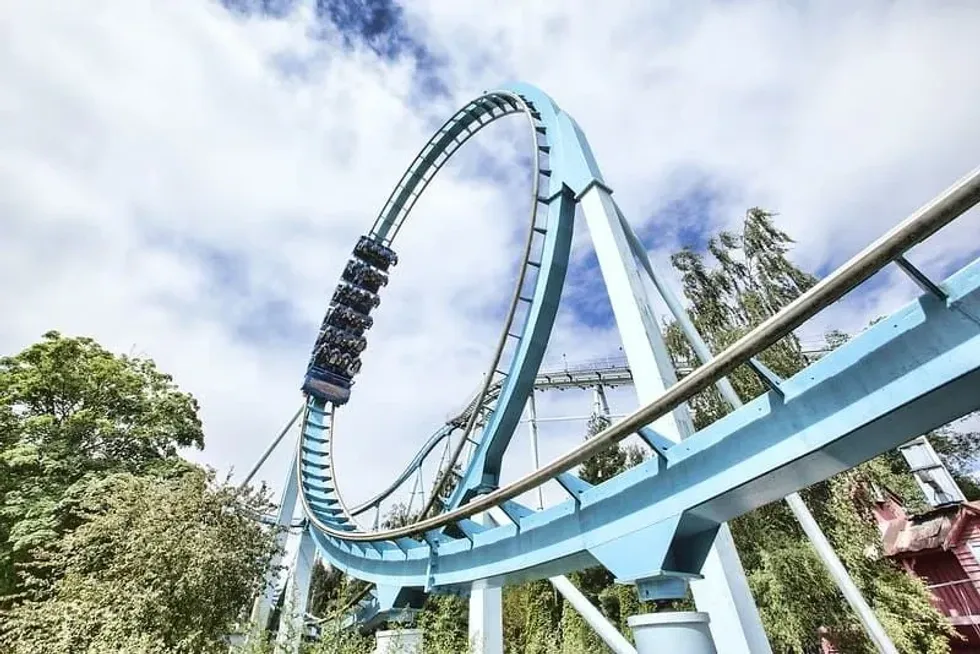

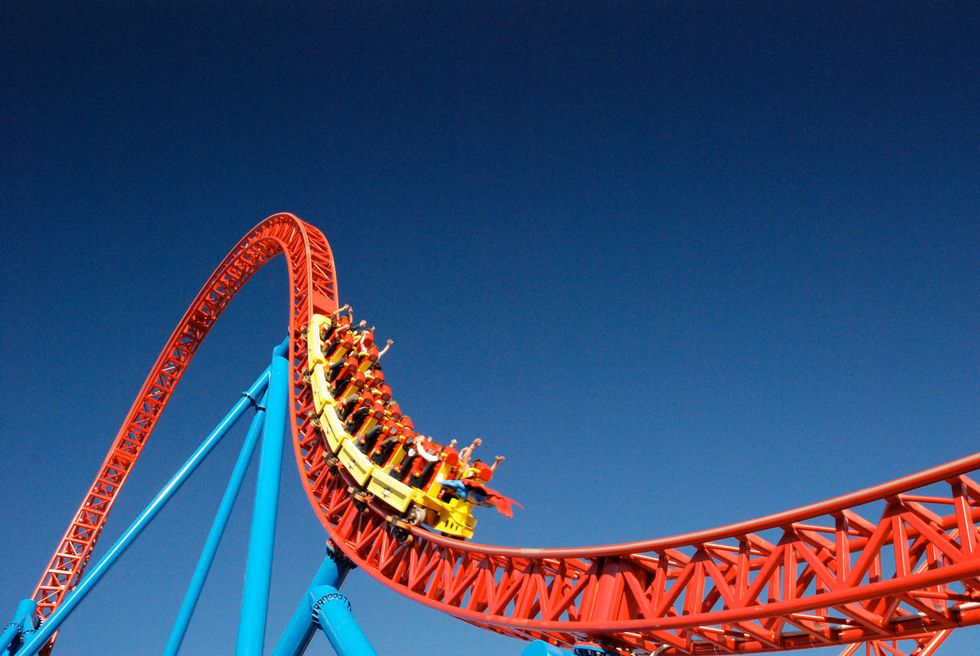 Shutterstock
Shutterstock